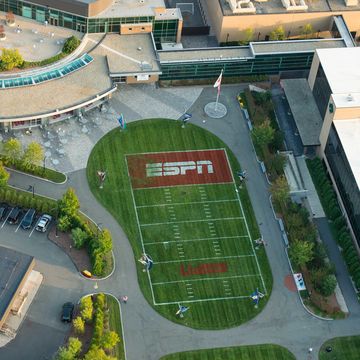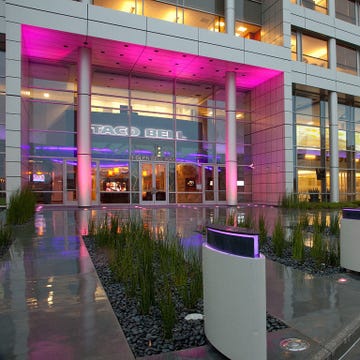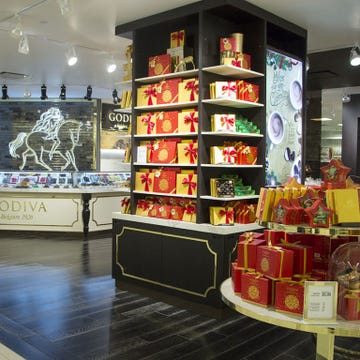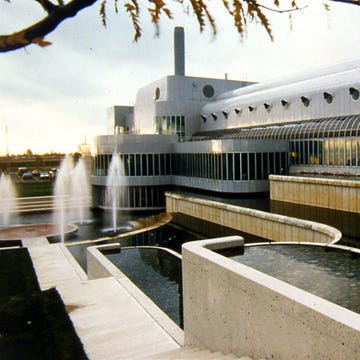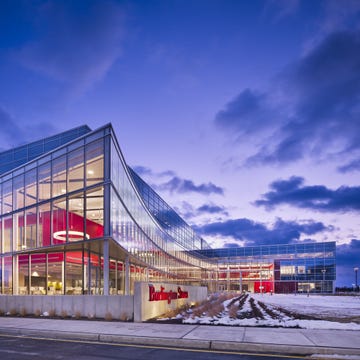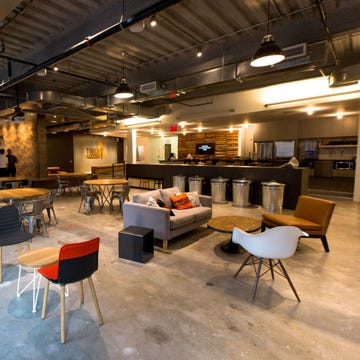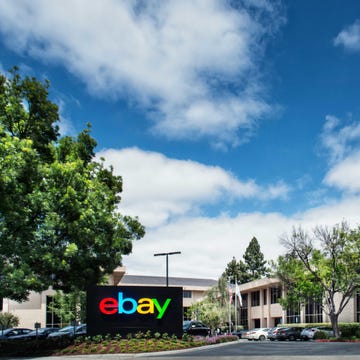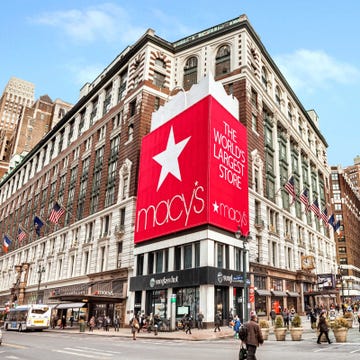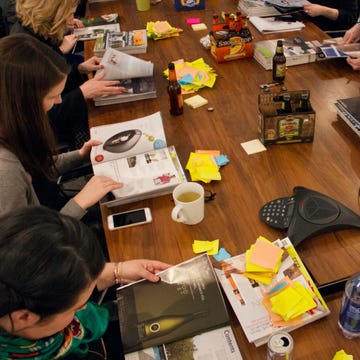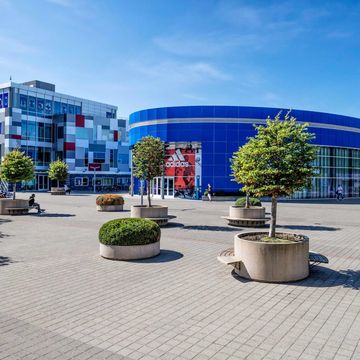Growing up with LEGO blocks has been a rite of childhood passage for more than 80 years. The LEGO Group was founded by the Kristiansen family in Billund, Denmark, in 1932 with a line of construction toys. Today, there are LEGO blocks in every color that help builders young and old create everything from baby farm animals to intricate architecture. The brand has also become a staple of pop culture, with LEGO movies, LEGO video games, and Legoland theme parks around the world. The global organization, still headquartered in Billund, employs more than 13,000 people in 130 countries around the world.
Jennifer Langone, director of HR services, explains that creativity and the ability to have fun are as essential to landing a job at the LEGO Group as job skills.
What qualities do you look for in every candidate?
We look for someone who can be successful in our culture. We focus heavily on leadership, overall career potential, and specific competencies that will enable the individual to be successful in the current role but also provide them opportunities to grow within the organization.
How many employees do you have in the U.S.?
We have approximately 750 employees in our U.S. headquarters in Enfield, Connecticut, and 2,200 domestically. The remaining population is located across the U.S., primarily working in our LEGO stores. The Enfield office is comprised of many functions including sales, marketing, brand retail, market operations, and finance.
Where do you recruit new candidates?
All open roles are posted on our career site, and we utilize social, professional networks like LinkedIn. We also leverage our established partnerships with global recruiting firms to supplement our searches for specific or niche roles as necessary. Most of our searches for the U.S. headquarters are regional, but we also have a fair amount of national searches, depending on the role.
Do you offer relocation assistance for new hires?
In some cases, but not all. It depends on the role and our ability to find local talent to match the needs of the organization.
How often do you hire new people?
Due to the volume of new stores and our growth plans, we are constantly hiring and bringing talent into our organization. Last year, including both permanent and temporary hires, we hired over 1,300 employees. Of the total amount of hires, our U.S. recruitment team filled 150 salaried positions in the Enfield, Connecticut, office. We have a strong commitment to development and strive to provide new opportunities for our existing employees, resulting in a lot of cross-functional and internal movement for our employees as well. Our goal is to find the best fit for every role.
What areas of the company are growing fastest right now?
As we expand our footprint in Asia, we have a tremendous amount growth in that market. To support our growth in new markets, we see a significant growth in headcount in our production and manufacturing sites. In the U.S., we are focused on growth in areas such as digitalization.
What do you expect candidates to know about the LEGO Group before an interview?
There is no hidden formula for what makes a great LEGO interview. The most important thing is for a candidate to be authentic, and share their experiences and aspirations with us as openly as possible. We expect that candidates have spent time understanding our product, our vision, and learning more about what the LEGO Group does and why. Hopefully, candidates have spent time before the interview reflecting on some of the questions they may have for us about working here as well.
How can candidates interact with you on social media to stand out?
We have many social media platforms where we interact with candidates, including LinkedIn, Facebook, and Twitter. We post our open roles, interesting articles, and news every day, and we frequently talk back and forth with those who reach out to us.
Do you Google your candidates to check out how they represent themselves online?
We conduct comprehensive background screenings, reference checks, and education checks as standard protocol, but we do not Google our candidates as a matter of practice.
Do you have a presence on college campuses for recruiting?
While we do have good relationships with particular schools — we have partnerships with UConn, Bowdoin, and Wesleyan, to name a few — and have successfully found LEGO talent this way, we do not have a formal, consistent presence on campuses. However, we are focusing on using [our internship program] to provide a great experience for college students but to also combine that with our workforce planning in order to provide college-to-career opportunities.
How does the internship program work?
Our current internship program is still small and always evolving to enhance the quality of the experience for students. Interns are assigned to a department and receive defined projects. Students quickly become part of the team and are integrated into the department they support so they receive a true work experience. Projects can range from working on an analytical or research project to something extremely creative supporting our marketing or in-house agencies. [New internship opportunities are regularly posted @LEGOInternships on Twitter.]
Are interns paid, or do they receive college credit?
We have had both paid and unpaid/college credit options. Currently we are moving to a program that compensates all interns.
Do you regularly hire interns?
Yes, but the U.S. program is not large. We have traditionally hired spring, summer, and fall interns, but as part of our desire to enhance the program, we are considering moving to a summer-only program so that we can provide a longer, stronger experience for both the student and the LEGO Group.
What types of jobs are available for recent graduates?
In the U.S., there are many entry-level roles for recent graduates. For example, we have roles in our sales department that focus on supporting and building relationships with independent toy retailers. This entry-level role has a defined career path that includes a rotation from headquarters into the field managing larger accounts, followed by another opportunity to manage more strategic partnerships in the sales department. We also have entry-level roles in our marketing department starting as a marketing assistant with progressive opportunities both within brand marketing and cross-functionally. Our finance and corporate IT departments are also a great place to start your career.
Do most full-time positions require a specific degree?
Our salaried positions require a bachelor's degree, and some of our more specialized roles require a master's degree.
What types of questions do you typically ask in an interview?
We like to ask, "Why the LEGO Company?" This simple question is very telling. It quickly gives us an indicator on how much they know about our brand, what they value in an organization, as well as what they're looking for by way of a career. Another question we commonly ask is, "What do you do for fun?" This is an interesting question, as many candidates don't expect it. Fun is a core value for our brand and for our company culture, and it's important to us that our employees know how to have fun and make time for it.
What questions should candidates always ask you in an interview?
It's much less about what questions they should ask and more about coming prepared to ask quality questions about what is important to them.
What questions should they never ask?
As long as questions are professional, I can't say there are any that are off-limits.
Is it OK to bring up salary?
Yes, we expect a salary discussion. We also are very upfront during the screening process on expected salary range. However, we find that during the interview process, it is not a focus, perhaps because that dialogue happens early on.
What's a mistake people make in interviews all the time and don't know it?
We often ask candidates about their developmental opportunity areas, and we receive one of two answers that make us take a step back and think, Is this person self-aware or are they being honest? We hear, "I don't have a weakness or opportunity that would hold me back," or they put a twist on the opportunity area and turn it into a strength. When we ask this question, we are looking for an authentic answer. Everyone has opportunities to improve, and that is OK. It matters more how you speak to it and what you are doing to work on it. It allows us to understand what we would need to do to help support the candidates and enable their success, should they join our company.
What's unique about your interview process?
One unique aspect of our interview process is the hands-on building exercise where we ask candidates to build something with LEGO bricks that they feel represents themselves. We like to see how familiar candidates are with our product and how comfortable they are creating something fun and imaginative with our bricks and also how willing they are to be vulnerable. Watching future employees build a part of themselves is very memorable and reflective of our spirit and values. We keep the model they build in the interview and, if they are hired, we have it waiting for them on their desk on their first day of work.
Do you want people to talk about their nontraditional experience, such as volunteer work, extracurricular activities, and hobbies?
Yes, we find this especially valuable, as we believe that learning about what people do outside of the work environment gives us a sneak peek on the whole individual. We are a brand that strives to have a positive impact on children, and we look for personal values that match our company values, such as imagination, creativity, fun, learning, and caring. Many times personal values are highlighted by understanding how people choose to spend their time outside of work. For example, an athlete may talk a lot about teamwork and someone who volunteers personal time may focus on a cause greater than themselves. These are the experiences that we feel contribute to defining an individual.
What is the interview dress code?
While we are a casual environment, we strongly encourage business attire for an interview.
Do thank-you cards or emails matter to you?
Yes, thank-you notes or emails are important. While it's not a deal breaker, we definitely notice when a candidate does not send one and can be the difference between strong candidates.
Interview Insideris weekly series offering tips for getting a job at some of your favorite companies. Check back every Thursday for the latest interview.
Follow Heather on Twitter.



